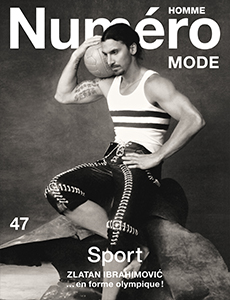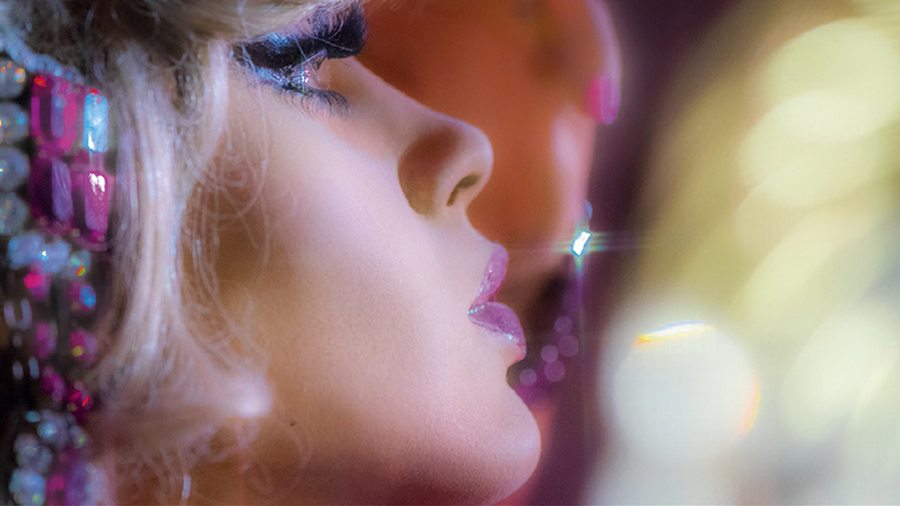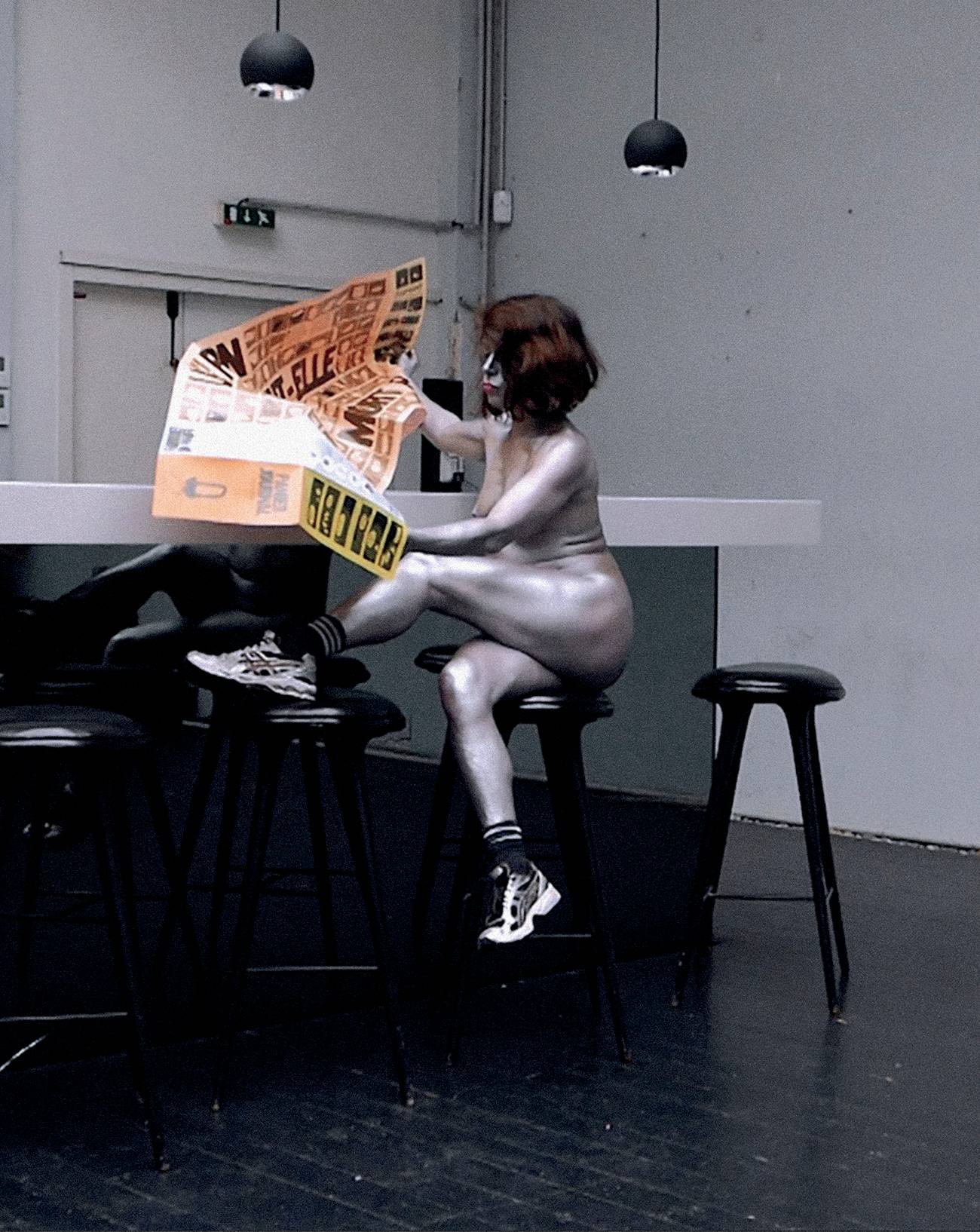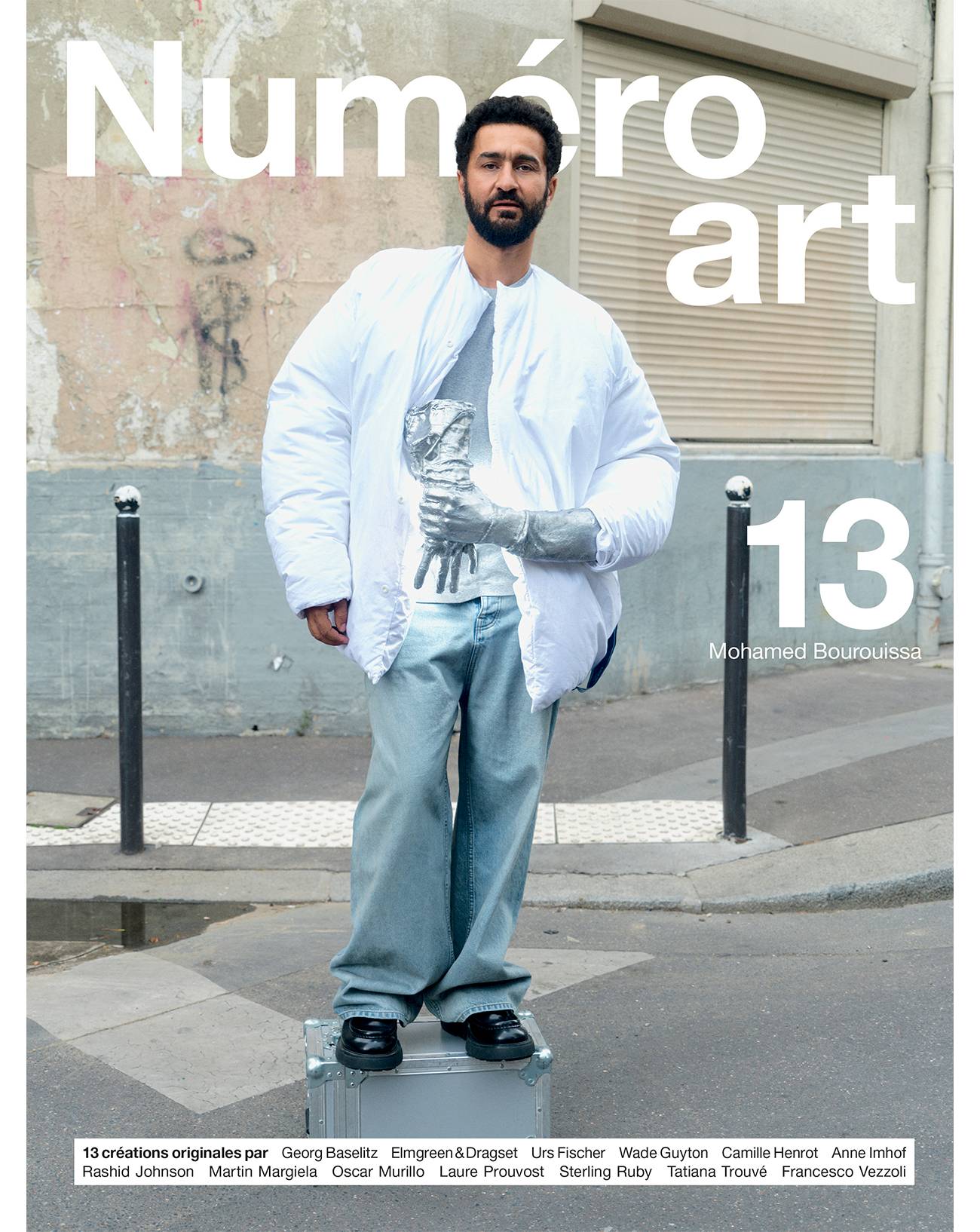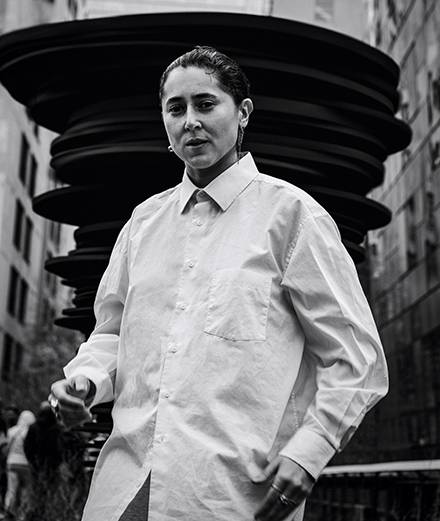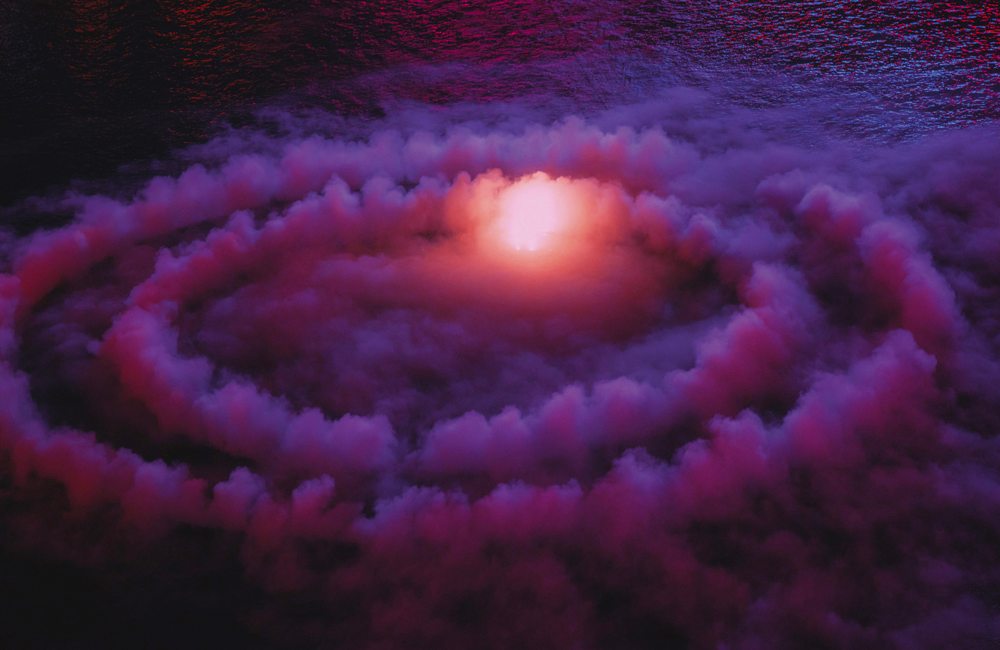

Thibaut Wychowanok: Your book on Las Vegas opens with three almost abstract pictures, in which one can make out an aquatic presence among a torrent of visual effects. It feels like you have experienced Las Vegas through sensations and colors above all, rather than through precise places that you would have wanted to document.
Jeff Burton: When I scouted the shoot, I chose to stay on the 50th floor of the Cosmopolitan Hotel. Funnily enough, I quit smoking 34 days ago, but when I shot this, I was a heavy smoker and this
room had a balcony. So that was part of the decision process, a little bit selfish, but I also thought it'd be amazing to be that high off the ground with no obstruction, no glass, and to be free to shoot in so many different ways. What you see in the first pictures are the Bellagio fountains. It was pretty amazing... floating. It feels like you're floating up there, on the 50th floor over the city, kind of flying. The fountain was the most spectacular thing to look at from that angle. It kind of looks like outer space or as if it is isolated from the rest of the situation. It really drew you in. It was hypnotic. That was the first thing I started shooting. The edit of the book is in chronological order because it seems to make sense to me, to go through it as I experienced it. It also made sense to me narratively. Arriving, being attracted to what you are attracted to and going on to the next phase. Almost like I was docking into a space. I was really responding to sensation, color and beauty.


It reminds me of Joan Mitchell’s abstract expressionism, which is currently exhibited at the Louis Vuitton Foundation. Mitchell said that his paintings expressed “feelings”, whereas Monet talked about “sensations”.
I was reading that piece about Joan Mitchell in Numéro art this morning and imagined what would it have been to absorb Vegas, go home and start to paint about what I remember. It would be totally different. What's interesting about photography versus painting is that it is so instant. It's an instantaneous reading, being present and responding to what's happening. You're capturing it. Personally, I like being lost in the moment with the camera and having that buffer between me and the material. For instance, when I shot the fighters of Ultimate Fighting for this book, what I like about the pictures is the perfect bodies, the intensity and the virility. I was actually scared to be in that environment. Of what it is going to be like to see people punch each other in the face. But I really got into it. Shooting the fighters reminded me of when I first got on porn sets as a young man, being titillated by the physicality of it, the hardcore. So I kind of felt at home in Vegas. I tried not to go into a snobbery about it, because I found that, as my porn work was starting to get attention, there would be people who would only be interested in the sexual part of it, and wouldn't open up to anything else. I thought that could be a danger with this material. Vegas is so Vegas and porn is porn. But it's more than that, it depends on how you look at things and how you translate those experiences. The abstraction for me is a way address this aspect, to avoid such a literal description that wouldn't give your mind a chance to go somewhere else.


Another strategy in your photographs is to always imply that something is happening outside the frame. Imagination can expand beyond the limits of the picture.
Well, you can find that approach in the earlier work, because I wanted to reinterpret or disrupt the narrative. When I'm shooting, I get very excited when different messages come to me about what I am looking at. What is this and what's beautiful about it? I try to clear all the judgment. I am just absorbing beauty.


In the interview published in the book with Patricij Remy, you explain that one of the best pieces of advice you have been given is that art is not about morality, and that beauty lies everywhere. I think that is was what your mother told you when she found out that you were a photographer on gay porn shoots.
I just cherish that statement she made because it took a while for me to admit to her that I was shooting pornography for a living. That that was my job, I thought it would scare her and that she'd be worried about her little boy. She didn't expect it. Then she said to me: beauty comes from strange places. That made me proud of her.


After you made photographs for the porn industry, the fashion industry rapidly noticed you. Two different environments that ultimately work with the same process, the creation of desire. The whole city of Las Vegas seems to feed on desire, longing to create more and more, a desire to consume, to gamble... Desire seems to be the driving force behind all your images. What was the initial desire that drove you to photograph Ultimate Fighters?
When I was a young man, I was interested in seeing porn. And in Texas, there wasn't a lot of representation of gay or anything to see that that would reinforce the idea that it is a possible experience to have. When I moved to LA I saw an add in a magazine that they needed a photographer on porn set. I thought I could do this, but I doubted to be able to handle this psychologically. When you don't have an experience on firsthand, you accept what the culture tells you about it. So I was a little afraid : "Oh, this is going to be too heavy for me. This is going to be a lot of drugs. There's going to be a lot of instability, sad stories." But you know, back to what my mom said about beauty coming from strange places, I still have friends, dear friends, that I worked with back then. I had a similar feeling, a similar fear about the Ultimate Fighting Championship. I was titillated by it, I was drawn to it. But I thought, it's not really my scene. I'm not a violent person. When I got there, I spent five days getting to know some of them and watching them do their press conferences. You see them as human beings, devoting years and years of their lives to martial arts. So they're really into their bodies, and they really follow their craft and try to perfect it. They're kind to each other. They hug each other. They were beating the hell out of each other, but they genuinely hug when it was over. It's quite moving really.


One can see this idea of performance manifest in each one of your photographs of shows in Las Vegas, such as the fighters, the Cirque du Soleil, etc. Perhaps, it is the idea of playing a role in front of an audience, of an artificial situation...
I appreciate what you're saying about the performance side of it, It's a mixture of talent performance, which is very much what porn was like. When people laugh about porn stars, saying they're just like sluts or whatever.... The exhibitionism that you have to tap into, to pull that off, it's kind of unbelievable to be sexualized. You are in front of 30 strangers with cameras, knowing that it's going to be edited and put out into the world where millions of people see it. I felt that same thing about the fighters. And about the Cirque du Soleil people. To have that body control, mind control. To do that in front of crowds, and having it taped where it's then going to be distributed. I have an incredible amount of respect for these people because I am the exact opposite. I guess that's the attraction of exhibitionists and voyeurs. I like having that machine, my camera, to separate me from it. But to be able to capture it and get right in on it, it felt like it's a real luxury, real privilege, when people let me come in and capture them.


I mentioned Joan Mitchell and painting previously. Yet, your photographs also evoke a kind of Hollywood cinema, of panoramic vision, and of the voyeurism one can find in Hitchcock or De Palma.
I almost always shoot horizontals, when I'm allowed to, because that's my instinctual format. So there must be a cinematic anchor to how I respond to seeing things. Quite often they're three or four different things going on in my pictures. I try to make things that look like they are all happening at once. It's not about describing something really clearly, it's actually forcing your mind to make something up that isn't showed. The picture will create confusion and make you think : "What am I looking at? What is happening here?" Those things excite me as it becomes really seductive and it compels you to want to know more.


How do you work with your camera? Do you capture a moment, or do you work on staging a situation?
In the beginning, when people had to explain my work they would describe it as snapshot aesthetic. I heard this description often and that annoyed me because all my shapes and subjects are actually pretty studied. It is making me think of a term that I used when I discussed this with other friends who know me or my work. It's like, "first degree, second degree, third degree, fourth degree pictures." I tend to get bored if it's a first. If I'm shooting a portrait of somebody, and during this time it forms this connection, it can be wonderful and you can get great stuff. But every now and then, I like to become the voyeur again. So then it starts to go to second degree, third degree or fourth degree - depending on.. if you start to show, the mechanisms that make the picture, like the groomer is there etc. Showing the artifice of the situation. I like to keep that stuff in mind when I'm in those environments, which is what I did on the porn sets. It was not to make a behind the scenes commentary about cinema so much, but just to give hints that it makes your mind thinking. It can become confusing. What excites me is when it feels as if it doesn't look like somebody else's picture.
Las Vegas Jeff Burton, collection Louis Vuitton Fashion Eye. Available.


